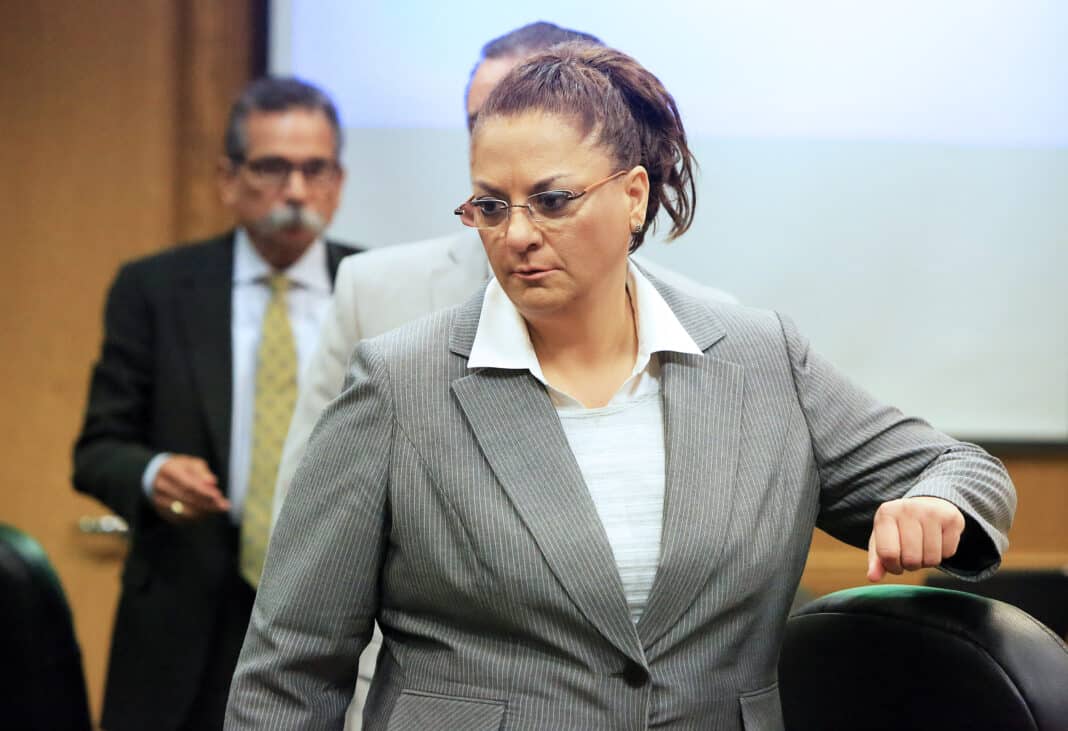The Texas Court of Criminal Appeals has declined to consider a brief filed by the Innocence Project of Texas on behalf of Monica Melissa Patterson that argues a forensic pathologist’s testimony during her trial was improper and was not based on science.
Patterson, 53, is serving life in prison for orchestrating the Jan. 28, 2015, suffocation death of 96-year-old Martin Knell.
A six-week trial in 2017 revealed how Patterson learned of Knell’s wealth, befriended the man, gained access to his bank accounts and acquired his power of attorney before becoming the executrix of his will — all over the course of four months.
At the time of the killing, Patterson served as director of the Comfort House, a McAllen-based nonprofit that provides hospice care. She was also convicted of stealing more than $100,000 from the nonprofit, which she used to fund trips to Las Vegas and for a extravagant graduation party for her son with the bill exceeding $20,000.
She was also convicted of attempting to steal more than $200,000 from Knell.
On the day of the murder, Patterson enlisted Angel Mario Garza, 45, to suffocate Knell, which occurred about a month after she gained control of his estate. She promised the man a cut from Knell’s estate.
However, on the day of the killing, investigators initially determined that Knell died of natural causes and Patterson had told Celestina Mascarro, a witness who had cared for Knell, to wait 30 to 45 minutes after Garza and Patterson left Knell’s residence and call 9-1-1 to report he died from an illness.
Mascarro told authorities she initially didn’t tell police about the murder because she was afraid of the politically connected Patterson, but a month after the killing she reported what she heard and saw to the Texas Rangers.
About six months later, in late August of 2015, authorities arrested Patterson and charged her with capital murder.
Nearly a year ago, the 13th Court of Appeals dismissed Patterson’s appeal that attacked numerous parts of her case, including testimony from forensic pathologist Norma Jean Farley.
In the Innocence Project of Texas brief, which notes that the organization takes no position on Patterson’s guilt or innocence, attorneys also challenge Farley’s testimony.
“In Appellant’s case, Dr. Farley concluded the deceased’s cause of death was ‘asphyxia by suffocation,’ and manner of death was ‘homicide.’ She based her opinion on the statements of two lay witnesses, despite admitting she could not rule out other causes and made no independent medical finding at autopsy to corroborate suffocation,” the brief stated.
In asking the Texas Court of Criminal Appeals to review Patterson’s case, the Innocence Project of Texas attorneys state their request is limited to the question of whether medical examiners, based on the rules of evidence, can determine cause of death and testify using only “speculative police investigations and unscientific, non-medical lay witness opinion testimony.”
The Innocence Project of Texas argued that the high court should review this issue because misleading science is a recurring and significant theme in wrongful convictions throughout the country.
However, on Wednesday, the Texas Court of Criminal Appeals denied that request without a written order.
As for Garza, who is serving a 45-year sentence for murder, he is eligible for parole in early 2038.





